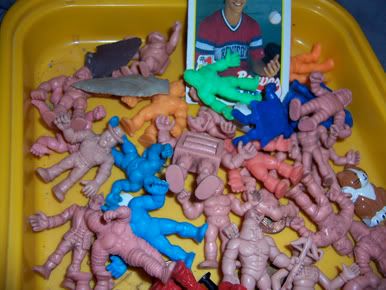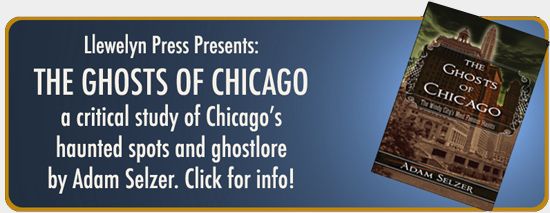Banned Books Week has come again, and I'm proud to be listed by the ALA as one of the most challenged authors of the year (despite my attempts to make all of my books to date "ages 10+" instead of "ages 14+").
Of course, I don't wish to flatter myself: it's not as though my books are really THAT daring or dangerous. Getting challenged is really just luck of the draw - very rarely do people who challenge books really take the time to READ them first. They just skim for the swear words, if that. And "smart ass" was helpfully visible in bold text right on the back cover of
How to Get Suspended and Influence People, which is probably how I came to make the list, even though that book isn't nearly as well known, or as edgy, as most other titles on the list of most-challenged books.
Now, the word "ass" is not a new one. It wasn't even a new one when George Washington used it while crossing the Delaware (a quote Newt Gingrich left out of his Twitter re-enactment of the Battle of Trenton). It's been in the world as a synonym for "buttocks" about as long as the English language as we know it (or at least since it evolved from the British "arse.")
But you can rarely tell that to the people who want to control what books are in the library. If you get down to the root of it all, the motive for most of the people challenging books is that the books violate their sense of The Way Things Ought to Be. They have a fantasy world in their heads where no one swears, no one has per-marital sex, no one is gay, and everyone is either a devout Christian or the town atheist. And they've convinced themselves that not only was this the way God and the Founding Fathers intended the world to be*, but that it really WAS exactly that way until just recently - possibly as late as February of '64, when the Beatles played on
Ed Sullivan. This fallacy isn't just limited to conservatives, either - a friend of mine was teaching a college-level course on gothic fiction and showed
The Rocky Horror Picture Show. Most of the comments from students who weren't familiar with it were along the lines of "when was this made? It's too out there to be that old."
This is why almost no one who isn't a character in
The Music Man wastes any energy complaining about
The Canterbury Tales these days: it's so old that people who aren't really paying attention can't imagine that it's a threat.
When you read through a list of banned books and the reasons WHY they were banned, you can make a checklist of things that offend people. Not quite
all of them can be said of
Canterbury Tales; I've seen one list saying that
Crime and Punishment was banned for being "written by a Russian," which Geoffery Chaucer was not (though he was, according to ancestry.com, one of my couple hundred thousand 18th Great Grandfathers). Just about everything else is in there, though.
Grandpa Geoff (as I always called him) wrote
The Canterbury Tales about six hundred years ago, and it's a standard text in both high schools and colleges. I believe I had to read it (or selections from it) in seven different classes over the course of my education. Most teachers, however, don't really understand the point of the book; it's not exactly great literature, it's just a really, really funny bunch of stories. One of my high school textbooks described The Knight's Tale as a very formal tale of courtly romance. Actually, it's sort of a satire of those: the guy in it seems to respond to every situation by launching into a big, melodramatic speech. Someone's about to kill you? Quick! Make a speech! The knight probably thought he was telling a formal story, but I don't think Chaucer did.
In fact, if you get a teacher who knows how to really "make it come alive," (ie, understands the jokes, and will explain them, instead of just having you write down the definition of "yeoman" and "reeve"),
The Canterbury Tales is an absolute riot.
For instance, one of my college professors was an old southern lady - I'm not sure HOW old, exactly, but she was in grad school during the second World War, so she had to be into her 80s. She spoke in that dignified form of the southern accent that you seldom hear today, and was able to stretch "turd" into a three syllable word (tur-id-uh). I found this out when she read this selection from the end of "The Pardoner's Tale" in which a speaker castigates a a holy relic salesman that he doesn't think is on the level:
Thou woldest make me kisse thyn olde breech
And swere it were a relik of a saint,
Though it were with thy fundament depeint
But, by the crois which that Sainte Elaine foond,
I wolde I hadde thy coilons in myn hond,
In stede of relikes or of saintuarye.
Lat cutte hem of: I wol thee helpe hem carye.
They shal be shrined in an hogges tord."
Or, in modern English: "you would make me kiss your old pants, and say they were the relic of a saint, even though they were stained by your butt. Why, by the Cross that St. Helen found, I wish I had your balls in my hand instead of a holy relic! I'd cut them off and enshrine them in a hog's turd." Read that in a
Gone with the Wind accent, and imagine it coming from a little old lady.
Now, as hilarious as that is, this passage pushes a LOT of buttons. There are two explicit references to parts of the body normally covered (at least nowadays) by underpants, two references to feces, and one threat of sexual violence (since it's a guy grabbing another guy's coilons, one could probably even accuse the passage of homosexual themes). It could also be seen as belittling to Christians, who are frequently portrayed as bumbling, corrupt hypocrits throughout the book.
That passage alone makes it a lot worse than most books that were challenged last year. And elsewhere in
The Canterbury Tales, we have a guy who tricks someone into kissing a guy's hairy anus, a professional wife who staunchly argues that our private parts are not just for peeing and reproduction, but for fun (she even uses the "c" word, which Chaucer spelled "quainte.") And there are the poop jokes, too - lots and lots of those, occasionally even making use of the word "shit" (or, in the prologue, an archaic form: "shitten").
It's only natural that there would be poop jokes, really. The framing device for the stories is of a bunch of pilgrims making a long journey from town to town on the way to a tomb they want to visit. There were no rest stops on trails from town to town in those days - you just had to duck off from the group and do your business. And the pilgrims (who probably had serious cases of monkey butt) could usually tell when they were close to a town by the smell of excrement in the air. Poop was something these guys dealt with daily, and jokes about it were probably plentiful on those trips.
In other words, kids, this book has it all. It has poo, encouragement to have lots of sex, bad language (from an era before most people seem to think such words existed), and a whole host of other things. Clergymen, monks, and other members of the religious community are portrayed as sex-mad shysters who are sometimes threatened with having their nuts cut off. Violence? Plenty of that. I can't think of any drug use offhand, but there's plenty of drinking. Grandpa Geoff didn't shy away from much!
And this book's not just sitting on the shelves, it's probably being TAUGHT far more than any book on the ALA's list this year! So why don't more people try to ban
The Canterbury Tales? It's not just because they don't know Middle English - practically every version on the market is translated into more contemporary language.
The simple reason Grandpa Geoff gets away with it is that it's old - so old that most of the sort of people who go around banning books assume that there can't be anything wrong with it. Oh, they may get up in arms about having Shakespeare plays performed now and then (almost always due to violence, not sex), but to go after an old book for obscenity, blasphemy, and perversion would require them to admit that their Ned Flanders fantasy world never really existed.
Well, joke's on them!
Anyway, Happy Banned Book Week! Julie Halpern and I will be discussing our experiences having our books banned at the Book Cellar, in the 4700 block of North Lincoln here in Chicago, on Wednesday, 9/29, at 7pm (
facebook event page).
Also, I just did an interview about all of this stuff with
The Hate Mongering Tart. Enjoy!
* - note from The Smart Aleck Staff: one point we really hoped to make with
The Smart Aleck's Guide to American History is that any time you hear someone tell you how The Founding Fathers would want things to be today, they're blowing smoke out their ass. The Founding Fathers were a very diverse group (for a bunch of rich white guys), and knowing how their opinions would have evolved over a couple centuries is simply impossible. On any given issue, we here at the Smart Aleck's Guide generally assume that about half of the founders would be for it, and about half would be against it. There was no golden era when everyone agreed about what the role of government should be, how government should interact with religion, or how the constitution should be interpreted. They were arguing about these things before the ink was dry.





